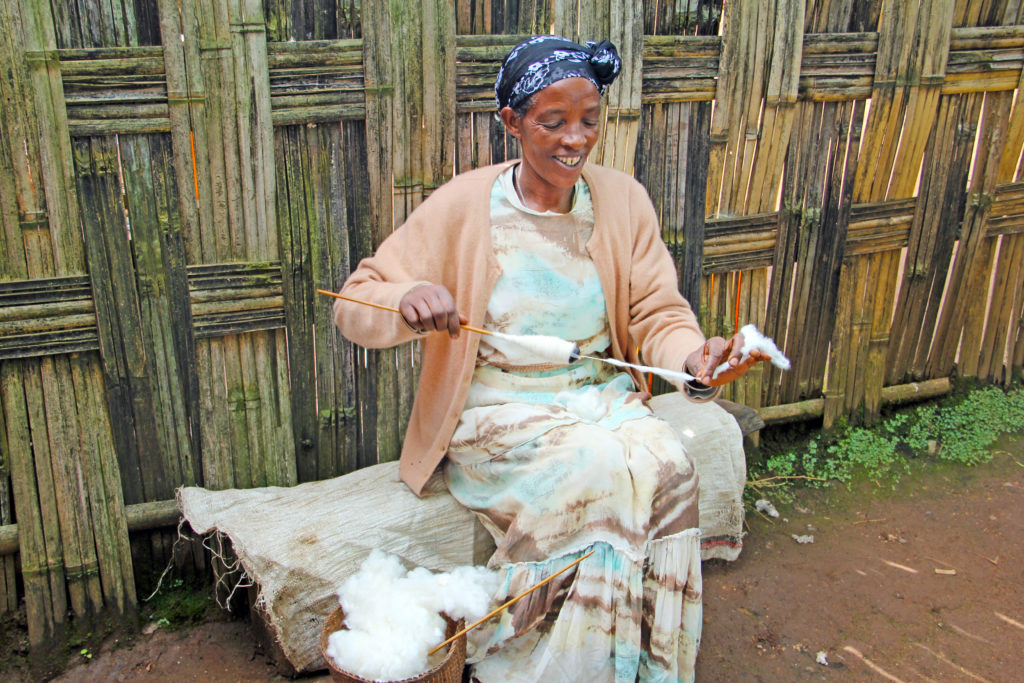
It’s #InternationalWomensDay. And quite frankly, the women in rural Africa are some of the most hard-working, dedicated, and loving individuals we’ve ever met. Not only do they look after their children, cook, clean, and create income-generating goods, but they are also the ones that the family depends on for fetching water daily. They trek for miles to get dirty water. They lead their children to the water source, helping them fill their own jerry cans of this disease-ridden water because it’s the only choice they have.
Without these women, there would be no water to drink.
Without these women, communities would fall apart.
They are the backbones of their families.
They are true heroes.
And in honor of #IWD2018, we’d like you to meet just one of the hundreds of strong women in rural east Africa, who work hard every single day to provide for their families.
Meet Mrs. Alemitu Mamo from the area of Elu Gelan in central Ethiopia. She is 38 years old and has five children.
She said that, before the new spring protection project was constructed in her village, they used to fetch water from the old unprotected water source. This old unprotected water source was polluted with visible leeches, which cause waterborne diseases like diarrhea. She recalls that a few years back, her younger son, Lemi Gebeyehu (who is 7 years old now) was taken to Ijaji health clinic because of diarrhea. She remembers paying 130 Birr for medication and transportation costs. Lemi’s elder brother Abetu was also seriously sick with diarrhea and had to be admitted to Bako Hospital, which is 45km away from their home town. It costed the family more than 500 Birr total for the medical treatment and transport cost. (Perspective: 1 US Dollar = 27.56 Ethiopian Birr. Meaning that 500 Birr is about $18 USD. And the average income for a rural Ethiopian family is only $660 USD annually, or about $12 USD a week.)
In addition, Alemitu lost her husband Mr. Gebeyehu Megersa three years ago because of sickness related to a waterborne disease. This has devastated the family and put the burden on Alemitu to raise and provide for the children by herself.
She said that thanks to the newly constructed water protection system, now they don’t have a health problem related with water. She stressed that now they can save their money from the clinic, medicine and related costs for other things. Furthermore, the children can fetch clean water without queuing for a long time, and are able to have time to study hard. And no need to miss class because they’re busy fetching water.
Alemitu is raising five children as a single mother, in one of the most rural and poorest places in the world. And she does so with grace and determination to live the best life she possibly can.
Her story is not unlike many others in rural Africa, of women stepping up and being the strength the entire family relies on. Alemitu inspires us, and we hope she inspires you, too. These women are incredible, and we are blessed to meet so many who share with us their stories. On this International Women’s Day, our prayer is that you would remember women like Alemitu all across the globe, and honor them by honoring the fierce, strong women right there in your own communities.



About The Author: Water to Thrive
More posts by Water to Thrive